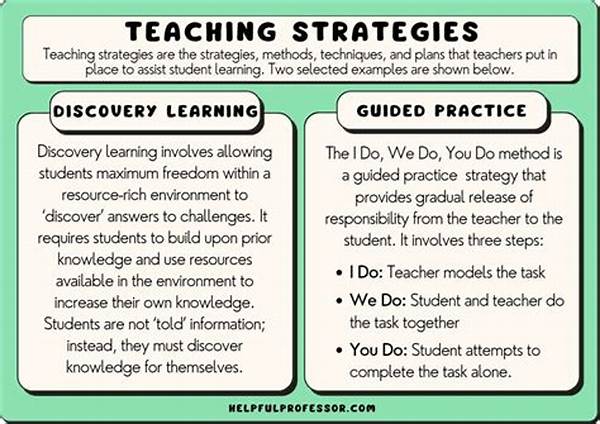Once upon a time, in the land of dusty tomes and flickering candlelights, brave souls embarked on intellectual journeys in classic literature. These weren’t just any adventures. Nah, these were mind-bending quests where characters dove deep into the abyss of human thought, surfacing only to deliver pearls of wisdom and whisper old truths. You could almost see them, strutting through pages alive with dialogues and soliloquies, wrestling with their own convictions, and waltzing amidst the wordplay. So, strap in, folks! We’re about to cruise through the universe of classic tales, where every turn of the page is an invitation to another world.
Read Now : Developing Active Listening Skills In Clubs
The Wonder of Introspective Adventures
In the world of classic literature, intellectual journeys are more than just longwinded narratives—they’re stunning spectacles. Check it out; each page flips like a movie scene, drawing us deeper into introspective realms. From Hamlet pondering life and death to Odysseus’s epic voyage home, these tales aren’t merely stories; they’re exploratory maps of the human condition.
Imagine catching a glimpse of Elizabeth Bennet, battling her own prejudices while navigating the social intricacies of her era. Or Victor Frankenstein, face-to-face with his monstrous creation, a living testament to unchecked ambition. Ain’t it crazy how these narratives, brimming with intricate themes and thought-provoking questions, resonate with readers across centuries? These classics drag us into an intellectual playground, urging us to reflect and reassess our own journeys. Bottom line, these literary masterpieces invite us to engage in an intellectual journey intertwined with timeless wisdom and perpetual self-discovery.
Snippets of Insight
1. Intellectual journeys in classic literature capture the chaotic beauty of human thought. Characters challenge their beliefs, inviting readers to do the same.
2. The likes of Holden Caulfield or Atticus Finch, you ask? These figures showcase humanity’s internal battles, relatable and timeless.
3. Epic quests like in The Iliad or introspections like in Crime and Punishment reveal universal truths intertwined with human experiences.
4. Don’t these literary odysseys just radiate genius? They engage, provoke, and leave folks pondering long after the last page.
5. Taking mind trips with these characters? It’s like having your mind blown over and over, amid plot twists and soul-searching questions.
The Dialect of Old and New
Let’s dive into the extraordinary collision of the old-world charm of classic literature and the new-age slang that revolutionizes storytelling. Picture this—a scene where Brontë’s emotional breadth meets modern-day lingo, or Austen’s probing wit mingles with today’s raw expressions. It’s a fusion, man—the old ways meeting new twists. The intellectual journeys in classic literature are given fresh life through modern interpretations, bridging the gap between time-honored narratives and the slang-infused conversation of today.
Yet, it’s not just about the language mash-up. This goes deeper—like, soul deep. It’s a chance to breathe new vitality into timeworn legends, making them resonate with today’s readers. For those scoffing at hefty vocabulary and complex paradigms, slang writing turns classics into accessible realms. It’s experimental yet familiar—a way to grasp age-old tales with fresh eyes and vigor. By infusing slang, these intellectual journeys in classic literature become relatable, biting, and, above all, unforgettable experiences.
The Slang Spectrum in Classics
1. The nuanced realms of intellectual journeys in classic literature are unlocked through slang’s dynamic dialogue, turning dull into dope.
2. Merging words like ye olde with modern twists speaks volumes—bridging gaps, capturing fresh eyes while honoring the old.
3. You say Emily Brontë, I say emo queen. Mix those vibes, and you’ve got emotional avalanches and epic feels.
4. Picture iconic monologues—Hamlet’s “to be, or not to be”—now charged with today’s fervor, stirring deeper emotions.
5. It’s like mashing the classics with memes; timeless concepts become instantly shareable, updating the conversation for ongoing relevance.
Read Now : Strategies For Early Reading Development
6. The elastic nature of slang erases barriers. It’s the entrance ticket to the dense worlds of Melville and Dickens, y’know?
7. Underneath the playful language is a reverence for the classics. Slang brings a splash of spontaneity, infusing the iconic with freshness.
8. Who knew Conrad’s Heart of Darkness could resonate with vibes of an existential dread #crew? But here we are!
9. Slang operates like a compass, guiding new readers through intricate plots with ease, maintaining the integrity of these timeless tales.
10. And then, there’s the sheer creativity at play—a playground for writers and readers alike, making the old new again.
Conversations Across Time
In the booming cosmos of intellectual journeys in classic literature, conversations echo—a dance of times gone by, rewoven with the vernacular of today. It’s like having high tea with Shakespeare whilst simultaneously chatting on Snapchat in emoji-speak. Surprising? Heck yes! But illuminating all the same. A way to interpret the layers within these literary giants whilst expressing thoughts in tomorrow’s tones.
Ever wonder how Twain’s wit meets meme culture? Or how Orwell’s dystopian prophesies resonate deeper when layered with today’s slang? Reading classics infused with slang engages the curious minds, tearing down walls once built by obscure prose. Here, classic meets contemporary, tradition melds with next-gen vibes—offering a ticket into the minds of literary legends, bringing them into our present narrative.
Even better, it gifts readers the thrill of time travel—not just through narratives but through languages. It turns age-old introspections into lively discussions, propelling us to engage with intellectual journeys in classic literature with enthusiasm and zest. It’s like rekindling a spark—tangible, eternal, transforming dusty pages into dynamic discourses. An experience both genuine and immersive, ensuring timeless classics thrive within the nuances of modern-day dialogue.
Anthem of Evolving Expressions
In a world boiling with change, the beauty of intellectual journeys in classic literature transforms continually because it belongs to no particular era. It echoes through ages, adapting to dialogues while ferrying wisdom across generational borders. Today, where phrases like “lit” and “no cap” thrive, this fusion of expression is profound.
Slang infuses a breath of life into stoic lines, transforming notions of arduous reads into engaging encounters. Reimagined through the lens of our time, classics glide and groove with the rhythms of today’s discourse. It’s like watching a monochrome film blossom into technicolor right before your eyes—an evolving masterpiece.
So, when rhythms of contemporary slang twine into cerebral narratives of classic literature, what happens? Simple—the pages come to life. Each slang expression breathes vitality into old dialogues, transforming static characters into dynamic presentations. The elegance of classic prose mingles with the vibrancy of modern-day speak, crafting a narrative woven through time yet eternally fresh. An intellectual journey like no other, each tale remains, a cornerstone, while boldly stepping into the future.




